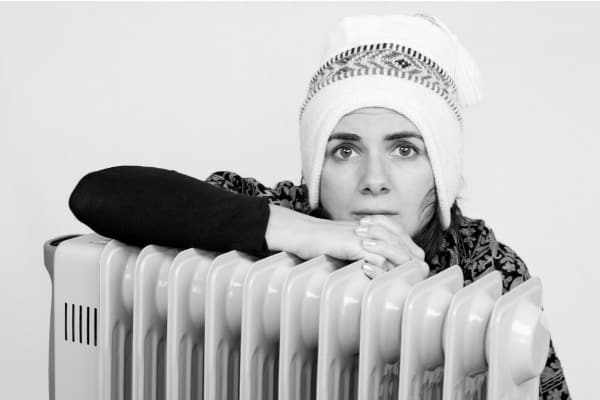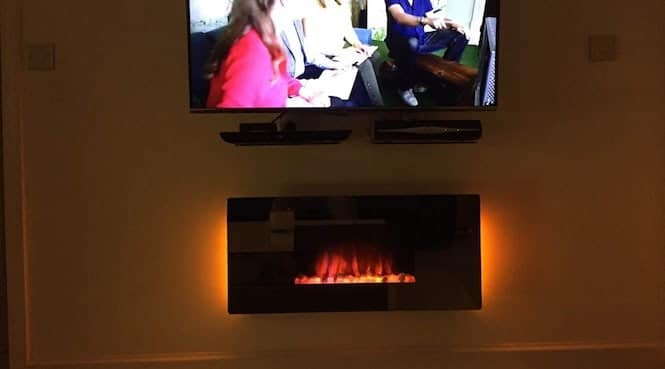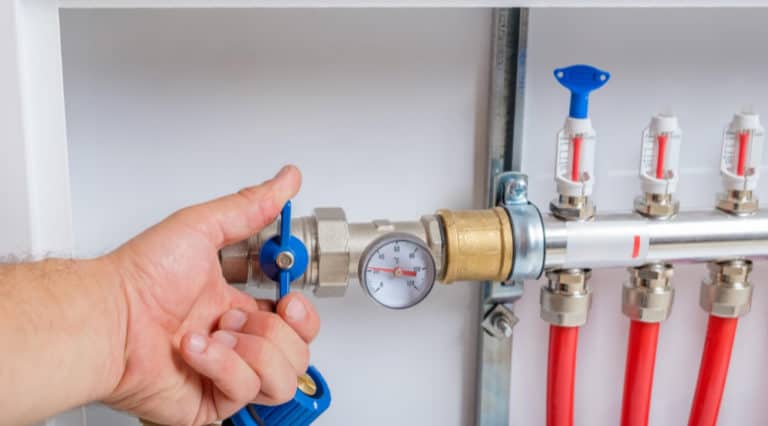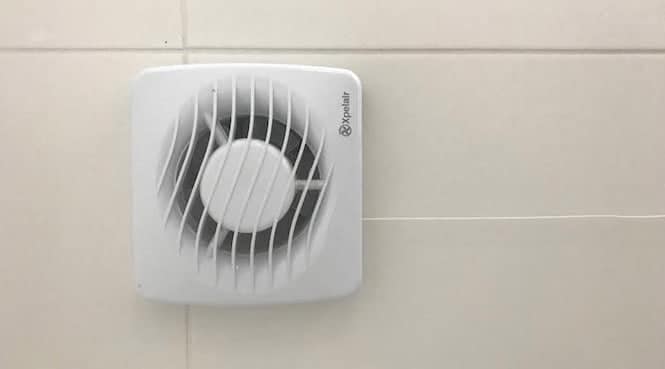Find My Local Expert Free Storage Heaters for UK Pensioners...
Read More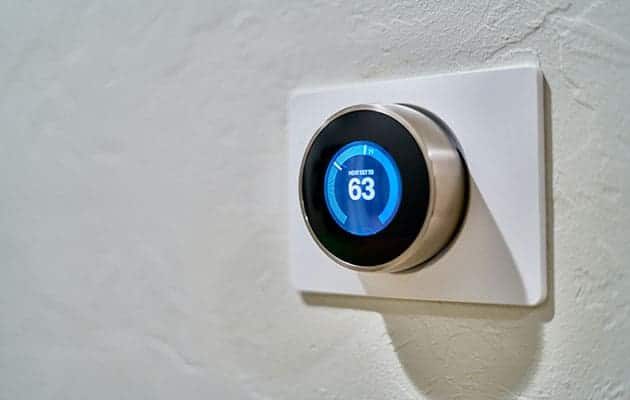
Is your Heater Energy-Efficient?
Most people use heaters in the cold winter seasons to keep warm. Nonetheless, heating your house can be very expensive, and if you aren’t careful, you might end up paying high utility bills. The energy cost will depend on where you live, the size of your house, and the nature of your heater. While using a gas heater, you can pay up to £30 monthly and around £120 per month for an electric heater.
Heating your house takes up to 42% of your utility bills. One main benefit of having an energy-efficient heater is lower utility bills. The heaters consume less energy without sacrificing quality, lowering energy expenditures. With an energy star certified heating unit, you can save up to 30%, or around £420 annually.
On the other hand, these energy-efficient heaters emit fewer greenhouse gases resulting in a smaller carbon footprint. The unit minimizes heat loss, saving on resources. You will enjoy contributing to a more significant cause by making good environmental choices that will benefit future generations.
Energy-efficient heaters also result in increased comfort levels. The unit uses a variable speed motor at the lowest necessary speed. As a result, the long heating cycles ensure total air filtration, making it cleaner to breathe. They also deliver steadier temperatures consistently for an extended period.
Additionally, energy-efficient heating systems cycle fewer times, which minimizes wear and tear on the motor. Thus, your unit is less likely to break down, causing frustrating disruptions. Read on to know more about efficient heaters.
How To Tell If Your Heater Is Energy-Efficient
It’s quite challenging to determine if your unit is working optimally. If you doubt your heater’s efficiency, here are several crucial measurements that you can consider.
#1 Age of Heater
Age also affects your unit efficiency. You shouldn’t expect the heater to perform the same throughout. On average, a household heater has an expected life span of about 15 to 20 years.
If you move into a new house, and you don’t know when the previous owner installed the heater, check the nameplate at the back of the cabinet. You should see the manufacturing date. If not, search the model and serial number and the brand name online to know the manufacturing date.
Although regular maintenance is crucial, it doesn’t expand your heater’s longevity. Remember that an old heater is also on the verge of a mechanical breakdown. It results in expensive future repairs besides the costly utility bills. Unfortunately, the inconveniencing malfunction may happen when you most need the heat. Emergency repairs can also be expensive.
Worse still, an old heater can contribute to health problems. It offers an excellent breeding ground for molds, fungi, and bacteria. It then recirculates these contaminants creating respiratory issues. Therefore it would be best to replace your heater once it begins to show signs of inefficiency. If you have a unit of about 16 and above years, you might need to upgrade to a new and more efficient model.
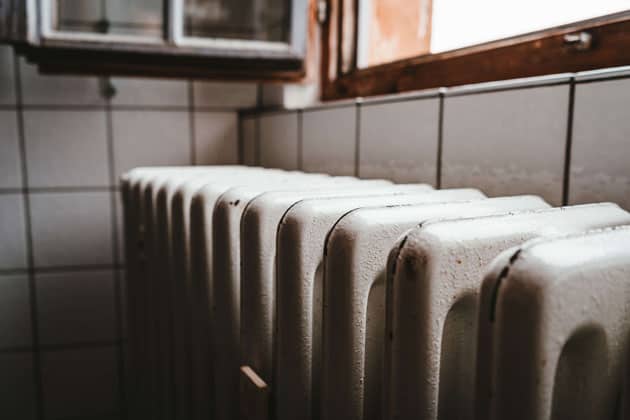
#2 Energy Bills
If you observe a sharp spike in your utility bills, it might be an indication that your heater isn’t working efficiently. Compare the energy consumption levels monthly to determine if your unit is experiencing decreased efficiency. Consider all the external factors that could also contribute to the higher utility bills, such as;
- Change in weather patterns
- Lack of maintenance
- Poor insulation
Monitoring such indications will help you make the right decision for your unit. For instance, if you have a clogged furnace, it works harder to draw air, resulting in higher power consumption. Hence, regularly changing the filters will reduce your heater’s running time, improving its efficiency.
On the other hand, if you fail to insulate your house adequately, you will lose heat from leaky windows and doors. Consequently, you will have to run your heater for longer hours at high temperature to obtain the desired conditions. It significantly increases your utility bills.
Failing motors, wheels, and capacitors also contributes to higher energy consumption, making your unit less efficient. Still, if you have a large heater, it creates rapid click on and off that can cause a short cycle resulting in higher bills.
On the other hand, if your technician can make a loose connection or miss out on some parts, leading to high bills and breakdown. Have your heater serviced by a specialist to check for any issues that may cause it to run harder, drawing energy consumption and utility bills higher. He will also help spot any leaks in your unit that can cause the heated air to escape.
What are the examples of Energy-efficient Heaters?
Your most efficient heater choice will depend on your house’s size and the fuel type. For instance, solar heaters seem somewhat more efficient since they cost nothing to run and have no harmful emissions.
Additionally, gas heaters are more efficient, results in fewer emissions, and are useful in generating heat. However, they are more prone to leaks, and you should therefore avoid older models. There are also several reasonably efficient electric heaters. They do not create emissions but can be quite expensive to operate.
The most appropriate heater type also depends on the intent of use. For instance, you can’t install a centrally positioned gas heating system in your house if you only want to heat a particular room for a couple of hours. In such a situation, the electric heaters are more appropriate.
Are there any ways to decrease my heater’s energy consumption without replacing it?
Energy is a costly necessity in most households. Yet, you can use various tips to reduce your heater’s energy consumption rate to save money and create a comfortable indoor environment.
First, you need to understand your unit’s controls very well. Ensure that you know how the heater works to use it in the most cost-efficient way.
For instance, if your system takes around 30 minutes to heat the house, consider turning it on early in advance.
Secondly, ensure that you turn your thermostat down when you wake up if you plan to spend the day in the house.
Additionally, check for gaps between the floor and vents and fill them to prevent hot air leakage. Further, ensure proper insulation at the attic and garage to prevent heat from escaping. Keep furniture and any other blockages away from your heaters since they can block the hot air.
Remember to schedule for pre-season maintenance to ensure that your unit runs efficiently. Clean and replace the air filters after three months or monthly if you have serious air quality issues. Also, use a ceiling fan in a reverse direction to redistribute the warm air collecting near the ceiling.

Conclusion
Using an energy-efficient heater helps improve your comfort and safety levels at a minimal cost. Remember that a more efficient unit consumes less energy. While figuring out the best way to heat your home, consider the house’s size, fuel availability in your area, your budget, and operational cost. Remember to use the above strategies to reduce utility bills further while using your energy-efficient heater.
You May Also Like...
Electric Wall Heater Installation
Find My Local Expert Electric Wall Heater Installation Considerations Many...
Read MoreBoiler Losing Pressure: Here’s how to fix it!
Find My Local Expert Boiler Losing Pressure? Here’s How to...
Read MoreBathroom Extractor Fan Installation
Find My Local Expert Installing a Bathroom Extractor Fan The...
Read More5 Tips on Upgrading Your Home Office Electrics
Find My Local Expert 5 Tips on Upgrading Your Home...
Read MoreFind a Trusted Local Central Heating Engineer In Your Area
My Trusted Expert Guarantee
Experts Have Been Vetted & Approved
